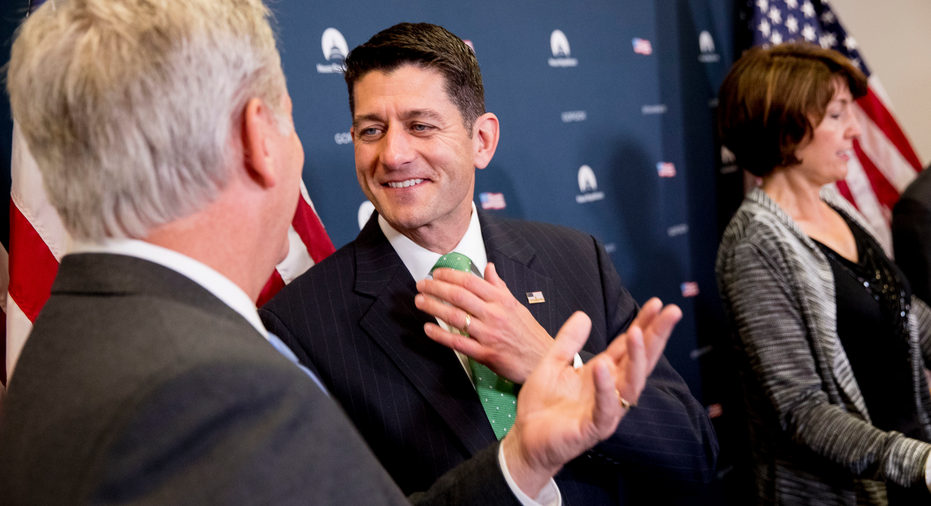House backs $1.2T spending bill with more money for military

WASHINGTON – The Republican-led House on Thursday passed a sweeping $1.2 trillion spending bill that provides billions more dollars for the military while sparing medical research and popular community development programs from deep cuts sought by President Donald Trump.
The vote was 211-198 for the massive measure that wrapped the 12 annual spending bills into one in advance of the end of the budget year on Sept. 30. Even though the Senate still must act, the government will keep operating through Dec. 8, thanks to legislation Congress passed last week and sent to Trump.
House members spent the past two weeks debating the measure's $500 billion for domestic agencies. GOP leaders then merged that domestic spending package with an earlier House measure that would give record budget increases to the Pentagon and provide a $1.6 billion down payment for Trump's wall along the U.S.-Mexico border that he repeatedly has insisted Mexico would finance.
"It does everything from strengthening our national defense and veterans' programs to cracking down on illegal immigration to protecting life to cutting abusive Washington agencies like the IRS and the EPA," said the No. 2 House Republican, Rep. Kevin McCarthy of California. Speaker Paul Ryan. R-Wis., praised a pay raise for the military, border security funding, and "defunding" Planned Parenthood as victories for Republicans and Trump.
At issue are the spending bills passed by Congress each year to fund day-to-day operations of federal agencies. Trump, following the lead of budget director Mick Mulvaney, a former tea party congressman, pushed for a sweeping increase for the Pentagon and commensurate cuts of more than $50 billion from domestic agencies and foreign aid.
House Republicans have responded by adding even more spending on defense, but have significantly scaled back Trump's cuts to domestic programs like community development grants and research into rare diseases.
Trump has taken a low-profile on budget issues other than the wall, however, and his administration has done little to fight for his spending cuts since they were unveiled.
The House measure adds almost $9 billion to Trump's funding request for medical research at the National Institutes of Health, rather than accepting sharp cuts recommended by Trump. It keeps as-is a $269 million subsidy for money-losing routes to rural airports that Trump had targeted. And it gives modest increases to GOP favorites such as law enforcement agencies and NASA.
But House Republicans voted to slash government accounts on studying climate change, eliminate Title X family planning funds, and sharply cut foreign aid accounts, though not as drastically as Trump proposed. A transportation grant program started by former President Barack Obama would be eliminated, as would hiring grants for local police departments.
The limits imposed by a budget agreement threaten the measure's sweeping Pentagon increases, which total about $60 billion above current levels and almost $30 billion higher than Trump's budget. That would evaporate next year unless there's a bipartisan agreement to raise them.
The senior Democrat on the House Appropriations Committee, Rep. Nita Lowey of New York, warned that without a new budget deal, a potential shutdown looms in December, when a temporary funding bill expires.
"Without an agreement to raise Budget Control Act spending caps, we will just face another crisis in December," Lowey said.
The legislation is laced with conservative provisions reversing Obama-era regulations, blocking implementation of the Affordable Care Act and defunding Planned Parenthood. But most such measures will be dropped — as in previous years — during subsequent negotiations with Democrats.
Passage of the legislation marks the first time since 2009 that the House has backed all of the appropriations bills in one fashion or the other by the end of the budget year. The progress was possible in part because House GOP leaders maneuvered to keep Democrats from forcing controversial votes on issues such as immigration.



















